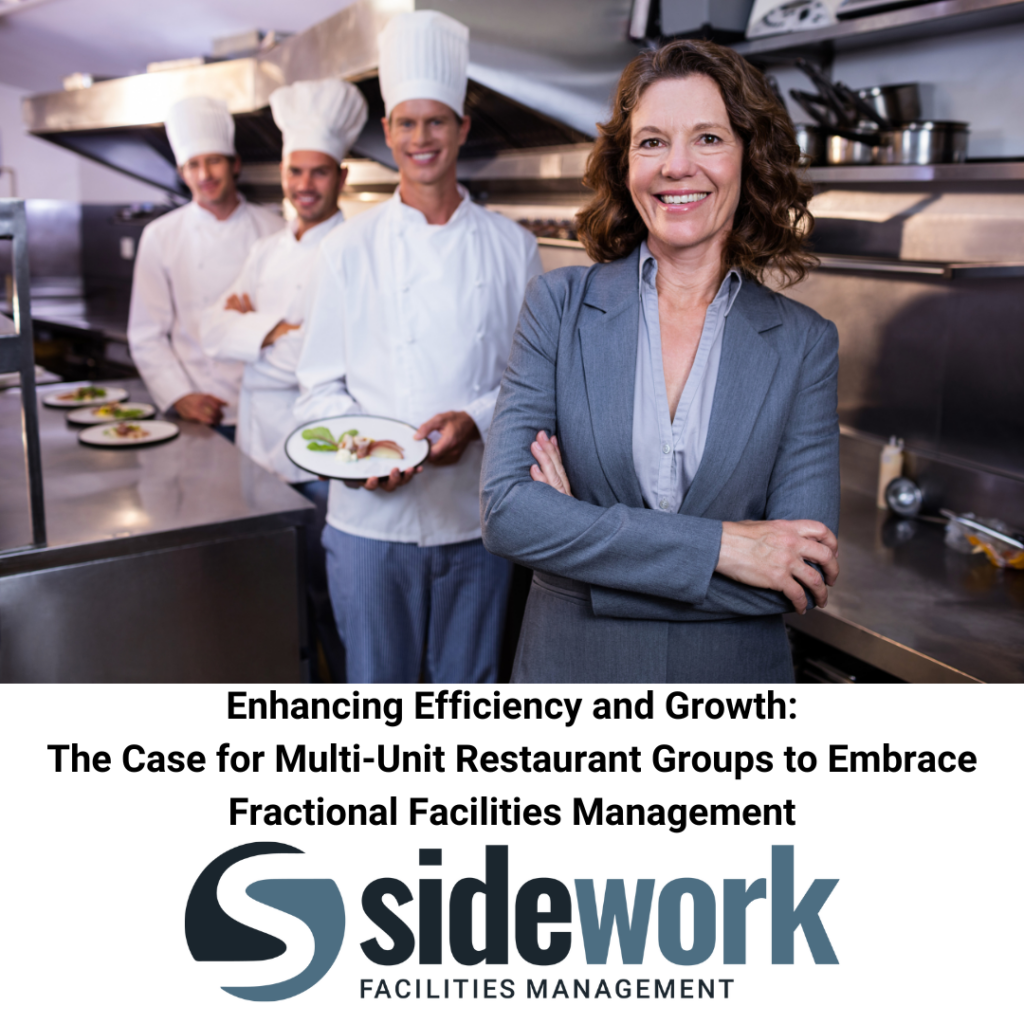In the dynamic and competitive landscape of the restaurant industry, efficiency and streamlined operations are paramount to success. For multi-unit restaurant groups, managing facilities across various locations can be a daunting task, often leading to operational inefficiencies, increased costs, and potential oversights in maintenance and compliance. However, there is a solution gaining traction within the industry that offers a strategic approach to facility management: fractional facilities management programs.
What exactly is fractional facilities management, and why should multi-unit restaurant groups consider embracing it? Let’s delve into the concept and explore the compelling reasons why it could be a game-changer for restaurant chains aiming to optimize their operations and drive growth.
Understanding Fractional Facilities Management
Fractional facilities management involves outsourcing specific facility management functions to a specialized third-party provider on a part-time or fractional basis. Instead of hiring full-time staff for each location or attempting to manage facilities internally, restaurant groups can leverage the expertise and resources of fractional facilities management programs to handle essential tasks such as maintenance, repairs, compliance, and vendor management.
The Benefits for Multi-Unit Restaurant Groups
1. Cost Efficiency
Operating multiple restaurant locations comes with inherent costs, including staffing, maintenance, and utilities. By adopting a fractional facilities management program, restaurant groups can reduce overhead expenses associated with maintaining an in-house facilities management team. Since fractional facilities management providers offer services on a part-time basis, businesses only pay for the specific services they require, resulting in cost savings without compromising on quality.
2. Expertise and Specialization
Facility management encompasses a wide range of disciplines, from HVAC maintenance to regulatory compliance. Fractional facilities management providers bring specialized expertise to the table, ensuring that each aspect of facility management is handled by professionals with the requisite knowledge and experience. This level of specialization can lead to improved efficiency, reduced downtime, and enhanced overall performance across restaurant locations.
3. Focus on Core Operations
For multi-unit restaurant groups, overseeing facility management tasks at each location can divert time and resources away from core business operations, such as menu development, customer service, and marketing. By outsourcing facility management to a fractional provider, restaurant owners and managers can redirect their focus toward strategic initiatives that drive growth and profitability. This allows them to allocate resources more effectively and prioritize activities that directly impact the bottom line.
4. Scalability and Flexibility
As restaurant groups expand and evolve, their facility management needs may change. Fractional facilities management programs offer scalability and flexibility, allowing businesses to adjust services according to fluctuating demands and growth trajectories. Whether opening new locations, renovating existing ones, or adapting to seasonal variations, restaurant chains can rely on fractional providers to scale their services accordingly, ensuring that facilities remain well-maintained and compliant at all times.
5. Risk Mitigation
Failure to address facility maintenance issues promptly can pose significant risks to restaurant operations, including safety hazards, regulatory violations, and disruptions to business continuity. Fractional facilities management programs help mitigate these risks by implementing proactive maintenance strategies, conducting regular inspections, and ensuring compliance with relevant regulations and standards. By entrusting facility management to experts, restaurant groups can minimize the likelihood of costly disruptions and reputational damage.
In an industry where operational efficiency and customer satisfaction are paramount, multi-unit restaurant groups cannot afford to overlook the importance of effective facility management. By embracing fractional facilities management programs, these businesses can unlock a host of benefits, including cost efficiency, specialized expertise, enhanced focus on core operations, scalability, flexibility, and risk mitigation.
As the restaurant landscape continues to evolve, leveraging external partners for facility management can provide a competitive edge, enabling restaurant chains to optimize their operations, drive growth, and deliver exceptional dining experiences to customers across all locations. In an era defined by innovation and efficiency, embracing fractional facilities management is not just a strategic choice but a crucial investment in long-term success.
To learn more about how our Sidework fractional facilities service offerings can empower your team, book a call with our hospitality specialists.

Facilities Manager for Hospitality with Kitchen Staff


